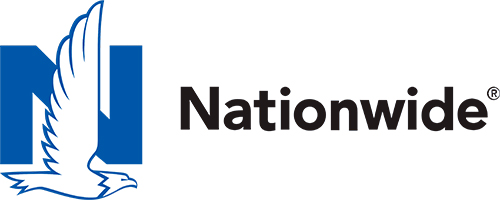Heating, ventilation, and air conditioning (HVAC) business insurance is a group of policies that business owners, HVAC technicians, and contractors are often required to buy. The core policies needed are general liability and workers’ compensation, and the combination of these can have premiums that can run from $10,000 to over $20,000 per year. In some states, licensure requires coverage and may also require a surety bond.
The leading HVAC insurers provide a sufficient amount of liability and offer umbrella policies and surety bonds. As such, we factored that into our proprietary rubric, which we used to evaluate HVAC insurance companies. From our evaluation, we found that these insurers offer the best HVAC business insurance:
- The Hartford: Best overall provider for HVAC business insurance
- Simply Business: Best for comparing quotes
- Next Insurance: Best for HVAC contractors
- Nationwide: Best for finding HVAC surety bonds
- Hiscox: Best for fast insurance for HVAC businesses
Best HVAC Insurance Companies Compared
Company | Quote Process | Availability | Bonds Available | Financial Rating |
|---|---|---|---|---|
 | Online | 24/7 call center | ✓ | A+ (Superior) |
Online | 24/7 live chat only | ✕ | A (Excellent) to A+ (Superior) | |
Online | Monday–Friday, 8 a.m.–5 p.m., Central Time | ✓ (Through Liberty Mutual) | A- (Excellent) | |
 | Through a local agent | 24/7 call center for claims | ✓ | A+ (Superior) |
 | Online | Monday–Friday, 7 a.m.–10 p.m., Eastern Time | ✕ | A (Excellent) |
The Hartford: Best Overall Provider for HVAC Business Insurance

Pros
- It offers different tiers of coverage to match your needs.
- It is available nationwide.
- It has in-house claims specialists.
Cons
- You may not be able to buy insurance online.
- Same day coverage is rarely available.
Standout Features
- It has an appetite for new businesses to HVAC companies with $1 million in payroll.
- Installation coverage, equipment protection, and other policies to help your business are available.
- You can get a quote online, manage your policy, and create an instant certificate of insurance (COI).
- The Hartford sells the total range of policies an HVAC may need, including workers’ comp and commercial auto.
Financial Stability: The Hartford has the stability you want in an insurance provider. The Hartford’s AM Best rating is A+ (Superior).
Because of its wide range of coverage, high limits, tailored business owner’s policy (BOP), and claims services, The Hartford is the best overall provider for HVAC technicians and contractors. It has an appetite for insuring HVAC businesses that run the gamut of size, from the ones just starting out to those with over $1 million in payroll.
It provided two estimates: a BOP for $9,404 and a workers’ compensation insurance policy for $13,861 annually. This is a bit higher than the average HVAC business insurance cost. Its customers’ average premium is $1,019 annually for a BOP.
Our custom quote included $20,000 in property and equipment coverage, installation coverage (covers HVAC units during transit and until installed), and up to $500 for each tool, including rented ones. The general liability carried a limit of $1 million per occurrence with a $2 million aggregate. The liability policy included data breach and employment practices liability insurance (EPLI).
The online quoting process is quick and straightforward, allowing you to customize your coverage completely. Once the policy is purchased, The Hartford offers online account management services and 24/7 call center support. Its complaints are lower than the national average.
Simply Business: Best for Comparing Quotes

Pros
- It is available nationwide.
- It offers affordable insurance options.
- It provides expert advice from dedicated agents.
Cons
- It has no commercial auto insurance available.
- It does not have a 24/7 call center for claims.
- Claims are handled by the insurer.
Standout Features
- You can find ways to save money on HVAC insurance by comparing quotes from multiple providers.
- You can adjust policy options like limits and deductibles and receive an updated quote with new pricing in real time.
- You can purchase insurance online without needing to speak with anyone, or you can call and get advice on the coverage you need before purchasing insurance.
Financial Stability: As a broker, Simply Business doesn’t have its own AM Best rating. It works with top-rated providers like Markel, and AM Best rated Markel an A (Excellent).
Since HVAC business insurance costs can run high, we recommend comparing quotes when shopping. Simply Business is a digital broker that specializes in helping small businesses find insurance. It works with numerous top-rated insurance carriers and provides quotes that you can adjust for updated pricing in real-time before purchasing the policy online.
We received four quotes for HVAC business insurance. Usually, there is an option to adjust the limits, but this time, there was no option for that. There was, however, the option to choose between monthly and annual payments. The quotes were all for general liability insurance with an aggregate limit of $2 million. The quotes and companies were:
- Markel: $54.68 monthly
- Accredited America: $120.07
- Hiscox: $132.75 monthly
- Harborway: $141.37
From these quotes, you can see these prices are on the lower end of the average, and by going with a broker, you can get HVAC insurance for as little as $54.68 a month.
While Simply Business operates only on weekdays, you have 24-hour access to your account. From there, you can request a COI and make limited modifications to your policy. Some more significant changes can be requested online and will take a day or two before taking effect.
To file a claim, you’ll need to contact the carrier who holds the policy. If you have trouble finding it or getting anything going with the claim, you can contact Simply Business for assistance.
Next Insurance: Best for HVAC Contractors

Pros
- It has tiered coverage to match your business size.
- Inland marine is available as an endorsement on general liability.
- Bonds are available through a partnership with Liberty Mutual.
Cons
- The revenue limit is $5 million.
- There is no 24/7 call center for claims.
- It is only available during weekdays.
Standout Features
- You can get a quote and purchase a policy online for HVAC business insurance in just minutes.
- You can create and share a COI for jobs in just minutes.
- You can manage your policy, file and track a claim, or share proof of insurance through the iOS and Android apps.
Financial Stability: Despite being a new player in a very established field, Next Insurance has a healthy credit rating. Next Insurance’s AM Best rating is A- (Excellent).
If you’d rather not have the hassle of working with an agent or waiting on a company to work with underwriting to provide a quote, then check out Next Insurance. As a newer company, it has decided to capitalize on the prevalence of mobile devices, making it as easy to get insurance, share proof of insurance regularly, or modify a policy and then show the updates using your phone. Whether you own an HVAC business or are a contractor, within minutes, you can get a quote and purchase a policy.
Next has three tiers of coverage for HVAC contractors, and we were provided a quote for each:
- The basic tier (quoted at $838.17) is a liability-only policy with a total limit of $1 million.
- The premier tier (quoted at $794.43) included the same liability limits but carried $5,000 in equipment coverage.
- The deluxe tier (quoted at $927.34) had the limit increased to $1 million per occurrence and $2 million aggregate, along with $10,000 for your tools.
With Next Insurance, obtaining quotes and purchasing a policy can be done online in minutes. You can also manage your account and file claims online. Next released an app to help you manage your policy, file claims, and get an instant COI.
If you need to call, it is available Monday through Friday, 8 a.m. to 5 p.m. CT. It has slightly lower-than-average complaints, so you can trust quality customer service if you call.
Nationwide: Best for HVAC Bonds

Pros
- Surety bonds are available in all 50 states.
- It has over 50 years of experience in surety bonds.
- It has a 24/7 claims call center and near immediate large loss responsiveness.
Cons
- Quotes for bonds are through agents only.
- It has limited information on account maintenance.
- HVAC insurance is primarily for residential work—only light commercial work will be insured.
Standout Features
- In addition to all of the key policies you’d need, Nationwide offers surety bonds for contractors, too
- It has dedicated consultants for policyholders in the construction space that includes loss control services.
- Multiple types of contractor bonds are available, including bid bonds, performance bonds, and maintenance bonds.
Financial Stability: Nationwide has the financial stability you expect from a company that has been in business for nearly 100 years. AM Best’s rating of Nationwide is A+ (Superior).
Many states have licensing boards for HVAC contractors. A common requirement for licensure or even to do work within certain ZIP codes is to carry a surety bond. Nationwide has a large number of different types of bonds for sale. This makes it easy to satisfy any bond requirements you may encounter while bidding for a job or seeking licensure.
Getting an online quote from Nationwide for HVAC business insurance can be more difficult than with other insurers on this list. If you have the option, you will need to provide a federal tax ID number (FEIN). You can also contact a local independent agent or call Nationwide directly.
It has a weekday service center available for customer needs and a 24/7 call center for claims.
Currently, based on the responses it received from small business owners, Nationwide is first in customer satisfaction on JD Power’s customer satisfaction survey. This is in line with the zero commercial complaints filed with the National Association of Insurance Commissioners (NAIC).
Hiscox: Best for Fast Insurance for HVAC Businesses

Pros
- Coverage includes punitive damages.
- Optional cyber insurance is available.
- It offers flexible monthly payment options.
Cons
- There is no 24/7 call center for claims.
- It has no mobile app to manage your policy.
- It does not offer commercial auto insurance.
Standout Features
- You can get a quote for insurance online and buy a policy, often for same-day coverage, in just minutes.
- Hiscox is a small business insurer with an appetite for larger firms and smaller ones, including businesses with revenue under $100,000.
- General liability, professional liability, inland marine, and workers’ comp are all available online.
- You can manage your policy online, including creating an instant COI.
Financial Stability: Financially, Hiscox is strong. AM Best rated Hiscox an A (Excellent).
While most insurance providers share the ability to get some form of an online quote, Hiscox stands out by making it very easy to get insurance online. The process is simple and quick—almost every day I have researched Hiscox, the option for same-day coverage was available. Choose Hiscox if you’re looking for simple insurance covering all the basics you’ll need for your HVAC business.
We received an estimate from Hiscox of $9,648 annually. For this policy, the monthly payment option requires a down payment of $2,412. After that, you would have 10 monthly payments of $723.60.
The quote was for a general liability policy that had a total limit of $300,000. It also included blanket additional insureds, meaning you can add as many additional insureds to the policy as needed without increasing the cost.
In addition to buying insurance online, you can call licensed agents, who are available Monday through Friday from 7:00 a.m. to 10:00 p.m. EST. You can also manage your account and file a claim online.
Complaints about Hiscox are slightly higher than the national average.
Methodology
We determined the HVAC business insurance using our in-house proprietary evaluation system. To arrive at the top recommendations, we focused on the customer’s needs. We also paid particular interest to convenience, financial ratings (AM Best), customer service, types of policies offered, and the overall experience as a policyholder with a specific provider.
When we evaluated various insurers for specific industries, we paid attention to key coverages and any specialized endorsements or packages the provider had created for that industry. Our team also looked into additional services that would enhance the customer experience.
HVAC Business Insurance Costs
The recommended policies for HVAC insurance are general liability and workers’ comp. If you carry those, premiums can be $10,000 or more. But the reality is that HVAC business insurance costs are more than simply your deductible. It is a combination of your insurance premium, deductible, and any bonds you may need.
Because HVAC is high-risk—combining electrical work with welding and sometimes liquefied petroleum gas—its costs are higher than what you’ll find in some other service and construction industries.
Estimated Annual HVAC Insurance Costs
Insurance Type | Coverage Limits | Average Deductible | |
|---|---|---|---|
General Liability | $9,000–$13,000 | $1 million occurrence/$2 million aggregate | Varies, $0–$500 |
Workers’ Compensation | $8,000–$15,000 | $500,000 total | None |
BOP | $10,000–$10,500 | $1 million occurrence/$2 million aggregate Property coverage $10,000–$20,000 | $500–$1,000 |
Commercial Auto | $1,600–$4,700 | $300,000 combined single limit | None |
Commercial Umbrella | $500–$2,000 | $1 million | Varies |
Insurance providers use multiple data points to calculate a premium. These will include the geographic location of your business, the size of your business, the expected revenue of your business, and your claims history.
Depending on the coverage sought, some other factors will come into play. If you are looking to insure a vehicle or property, then the age and value of the property will matter. If you are getting workers’ comp, the classification codes for all of your employees have a direct impact on how the premium is calculated.
Our related resources:
- How a General Liability Premium Calculated
- Workers’ Compensation Insurance Cost: Formula & Factors Impacting It
HVAC Business Insurance Requirements by State
When it comes to whether HVAC insurance is required and, if so, what type, it comes down to the state requirements. That’s because there is no national requirement for any type of business insurance.
The most commonly required types of coverage are workers’ compensation and general liability insurance. Check out your state to see what is required.
- License Required?: Yes – HVAC contractors must be licensed in Alabama by the Alabama Board of Heating, Air Conditioning & Refrigeration Contractors.
- Insurance Required?: No – According to Alabama HVAC license requirements and the Alabama Department of Insurance, HVAC contractors are not required to carry general liability insurance. However, it is generally considered a good business practice to carry liability insurance.
- Coverages Required?: Only HVAC contractors must secure a $15,000 performance bond to get licensed.
- License Required?: Yes – Contractors need to be licensed with the Arizona Registrar of Contractors.
- Insurance Required?: No
- Coverages Required?: N/A
- License Required?: Yes – Contractors must hold a license issued by the Arkansas Department of Health, Heating, Ventilation, Air Conditioning and Refrigeration Licensing Board.
- Insurance Required?: No
- Coverages Required?: N/A
- License Required?: Yes – HVAC contractors who complete jobs exceeding $500 should be licensed by the Department of Consumer Affairs Contractors State License Board.
- Insurance Required?: Yes
- Coverages Required?: Workers’ compensation is always required if you have a company with employees, and general liability insurance coverage between $1 million and $5 million is required if you have a registered LLC.
- License Required?: No – Licensing for HVAC contractors is not required, but it is possible to become certified. Local licensing may be required.
- Insurance Required?: Yes
- Coverages Required?: Colorado contractors with HVAC licensing are required to carry general liability insurance with a minimum policy limit of $100,000. Some counties and municipalities set specific insurance requirements. For example, the city of Longmont requires contractors to have $1 million in single limit liability and $4 million total in general and products aggregate liability insurances.
- License Required?: Yes
- Insurance Required?: No
- Coverages Required?: N/A
- License Required?: Yes
- Insurance Required?: No
- Coverages Required?: N/A
- License Required?: Yes – Licensing is required by the Department of Business and Professional Regulation.
- Insurance Required?: Yes
- Coverages Required?: All division two license holders, including specialists like certified and registered HVAC contractors, are required to carry $100,000 in liability insurance and $25,000 in property damage insurance.These limits are significantly less than Florida general contractors, who must carry $300,000 in liability insurance and $50,000 in property damage coverage.
- License Required?: Yes – HVAC contractors are required to have a license from the Division of Conditioned Air Contractors of the Construction Industry Licensing Board to work in the state.
- Insurance Required?: Yes
- Coverages Required?: Georgia HVAC contractors must secure a $10,000 surety bond.
- License Required?: Yes – Contractors must be licensed by the Hawaii Department of Commerce and Consumer Affairs.
- Insurance Required?: Yes
- Coverages Required?: HVAC contractors must show proof of workers’ compensation insurance, liability insurance ($100,000 per person, $300,000 per occurrence, and $50,000 property damage).
- License Required?: Yes – All people who work in the HVAC industry, including apprentices, journeymen and contractors, are required to be licensed. There are two classes of HVAC contractor licenses—contractor and specialty contractor—and both are awarded by the Idaho Division of Building Safety.
- Insurance Required?: Yes
- Coverages Required?: All HVAC contractors and Specialty HVAC contractors must purchase general liability insurance with a minimum coverage of $300,000.
$2,000 compliance bond is required.
- License Required?: No – However, there are HVAC license requirements on the local level.
- Insurance Required?: Yes
- Coverages Required?: However, localities may have their own coverage requirements, such as the following:
- Commercial general liability
- Commercial property
- Errors and Omissions (also known as professional liability)
- Workers’ compensation
- License Required?: No – However, there are many local governments that do have requirements.
- Insurance Required?: Yes
- Coverages Required?: Contractors must obtain an insurance policy of at least $500,000, a surety bond of at least $5,000, and workers’ compensation insurance. known as professional liability)
- Workers’ compensation
- License Required?: Yes – Contractors must be licensed by the Iowa Department of Public Health, Plumbing and Mechanical Systems Board.
- Insurance Required?: Yes – Tt requires insurance, a bond, and a permanent business address.
- Coverages Required?: Not stated
- License Required?: No
- Insurance Required?: Yes
- Coverages Required?: Most municipalities in Kansas require licensed HVAC contractors to carry a minimum of $500,000 in general liability insurance.
- License Required?: No
- Insurance Required?: Yes
- Coverages Required?: Most municipalities in Kansas require licensed HVAC contractors to carry a minimum of $500,000 in general liability insurance.
- License Required?: Yes – Licensing is required by the Louisiana State Licensing Board for Contractors.
- Insurance Required?: Yes
- Coverages Required?: This includes workers’ compensation insurance and general liability insurance of at least $100,000.
- License Required?: No
- Insurance Required?: No
- Coverages Required?: N/A
- License Required?: Yes – Contractors are required to be licensed by the Department of Labor, Licensing and Regulation, Board of Heating, Ventilation, Air Conditioning and Refrigeration Contractors
- Insurance Required?: Yes
- Coverages Required?: HVAC professionals with a limited, master restricted, or master license must meet the following insurance requirements:
- General liability insurance coverage of at least $300,000
- Property damage liability coverage of at least $100,000
- A certificate of insurance with the licensed professional’s name on it
- License Required?: No – Contractors do not need a state license unless they work specifically in refrigeration. Any refrigeration contractor who works with more than 10 tons of refrigeration must be licensed.
- Insurance Required?: Yes
- Coverages Required?: Refrigeration technicians and contractors should have the following insurance:
- General liability insurance
- Workers’ compensation insurance
- Commercial property insurance
- Commercial auto insurance
- Tools and equipment insurance
- License Required?: Yes – Contractors need to be licensed as a mechanical contractor by the Michigan Department of Licensing and Regulatory Affairs, Bureau of Construction Codes, Mechanical Division.
- Insurance Required?: Yes
- Coverages Required?: HVAC contractors in Michigan should carry the following insurance:
- Commercial general liability
- Workers’ compensation
- Personal liability
- Commercial property
- License Required?: No
- Insurance Required?: Yes
- Coverages Required?: All employers in Minnesota are legally required to carry workers’ compensation insurance unless they obtain permission from the Minnesota Department of Commerce to self-insure for this purpose. Cities such as Minneapolis and St. Paul have additional liability insurance requirements.In Minneapolis, HVAC contractors must show proof of insurance coverage of $300,000 for property damage and $100,000/$300,000 for injuries. In St. Paul, liability insurance must cover at least $500,000 injury/property damage combined
- License Required?: Yes – Contractors are required to get licensed by the Mississippi State Board of Contractors to work.
- Insurance Required?: Yes
- Coverages Required?: To meet Mississippi HVAC license requirements, the policy must provide coverage of at least $300,000 per occurrence ($600,000 aggregate) and list MSBOC on the policy documents. Failure to maintain this coverage will result in your license being revoked.
- License Required?: No
- Insurance Required?: Yes
- Coverages Required?: Contractors must have $500,000 in liability insurance and show proof that you have a surety bond of at least $10,000 when you apply for an HVAC contractor’s license.
- License Required?: No – However, contractors will have to register with the Department of Labor and Industry.
- Insurance Required?: No
- Coverages Required?: N/A
- License Required?: No – However, there may be licensing requirements on a local level.
- Insurance Required?: Yes
- Coverages Required?: HVAC contractors must carry a $500,000 general liability insurance policy.The city of Fremont requires contractors to have a certificate of liability insurance that meets the minimum requirements for the registration type:
- General contractors: $250,000
- Master Mechanical: $1 million
In the city of Omaha, a person with a master ACAD license must carry a minimum $300,000 liability insurance policy and a minimum $10,000 corporate surety bond.
- License Required?: Yes – HVAC contractors require a state license to work in Nevada.
- Insurance Required?: No
- Coverages Required?: N/A
- License Required?: No
- Insurance Required?: No
- Coverages Required?: N/A
- License Required?: Yes – HVAC contractors are required to be licensed by the New Jersey State Board of Examiners of Heating, Ventilating, Air Conditioning and Refrigeration Contractors.
- Insurance Required?: Yes
- Coverages Required?: The state requires you to carry a surety bond of at least $3,000 with coverage of at least $500,000.
- License Required?: Yes – Contractors need a state license from the New Mexico Regulation and Licensing Department.
- Insurance Required?: No
- Coverages Required?: New Mexico does not require journeymen to obtain HVAC business insurance before obtaining certification. It does, however, require that applicants purchase or have an active $10,000 surety bond.
- License Required?: No
- Insurance Required?: No
- Coverages Required?: However, there are requirements for Worker’s Compensation and unemployment insurance that your HVAC company must comply with.
- License Required?: Yes
- Insurance Required?: Yes
- Coverages Required?: Certain cities in North Carolina require a surety bond for HVAC contractors. For example, Greensboro, NC, requires a $2,000 bond, while Winston-Salem requires a $2,500 bond.
- License Required?: A HVAC contractor working on any projects worth $4,000 or more is required to obtain a state license from the North Dakota Secretary of State.
- Insurance Required?: No
- Coverages Required?: N/A
- License Required?: Yes – Licensing is required by the Ohio Construction Industry Licensing Board.
- Insurance Required?: Yes
- Coverages Required?: HVAC contractors that want to be able to work all over the state must carry at least $500,000 in general contractor liability insurance. However, those who wish only to work in specific cities may not need to carry as much insurance.
- Cleveland: HVAC contractors must carry $200,000 in liability insurance and a $25,000 surety bond with a power-of-attorney form.
- Columbus: HVAC contractors must have $300,000 in liability insurance and a $25,000 surety bond.
- Cincinnati: HVAC contractors must have $100,000 in liability insurance, have a certificate of insurance for workers’ compensation coverage, and provide a list of subcontractors if relevant.
- License Required?: Yes – Licenses are awarded by the Oklahoma Construction Industries Board and fall under the umbrella of Mechanical Contractor licenses.
- Insurance Required?: Yes
- Coverages Required?: Oklahoma required contractors to secure a surety bond for $5,000 and general liability insurance for at least $50,000 per occurrence.
- License Required?: Yes
- Insurance Required?: Yes
- Coverages Required?: All HVAC professionals must have liability insurance that covers at least $500,000 per incident and $1 million in aggregate coverage.
- License Required?: No
- Insurance Required?: Yes
- Coverages Required?: Under the HICPA, all home improvement contractors must also submit proof of insurance coverage. Pennsylvania mandates two basic types of coverage:
- Personal injury/liability: minimum $50,000
- Property damage: minimum $50,000
- License Required?: Yes
- Insurance Required?: Yes
- Coverages Required?: All contractors who work in the state must have coverage of at least $500,000 for property damage and professional liability.
- License Required?: Yes – Contractors must hold a state license issued by the South Carolina Department of Labor, Licensing and Regulation.
- Insurance Required?: Yes
- Coverages Required?: HVAC contractors in South Carolina can become licensed without meeting specific insurance requirements. However, in cases where a financial statement is not provided or a contractor cannot meet minimum net worth requirements, a surety bond is required. Here are a few other types of insurance you may need when working as an HVAC technician in South Carolina:
- Liability insurance
- Commercial auto
- License Required?: No
- Insurance Required?: Yes
- Coverages Required?: All Mechanical Contractors in South Dakota are required to carry a $10,000 surety bond.For example, in Rapid City, Mechanical Contractors must hold general aggregate liability insurance for $1 million, each occurrence liability for $1 million, and fire damage liability of $300,000.
- License Required?: Yes – An HVAC contractor in Tennessee must have a state license before bidding on projects costing $25,000 or more.
- Insurance Required?: Yes
- Coverages Required?: HVAC contractors must carry commercial auto, general liability, and workers’ compensation insurance.
- License Required?: Yes – Licenses are issued by the Texas Department of Licensing and Regulation.
- Insurance Required?: Yes
- Coverages Required?: Contractors must have general liability insurance to become a licensed HVAC contractor in Texas. The required liability coverage for HVAC insurance varies based on your license class:
- Class A licenses: The minimum limits for property damage and bodily injury are $300,000 per occurrence and $600,000 aggregate. The minimum limit for products and completed operations is $300,000 aggregate.
- Class B licenses: The minimum limits for property damage and bodily injury coverage are $100,000 per occurrence and $200,000 aggregate. The minimum limit for products and completed operations is $100,000 aggregate.
- License Required?: Yes – A state license from the Utah Division of Occupational and Professional Licensing is required.
- Insurance Required?: Yes
- Coverages Required?: Contractors must have a minimum of $100,000 worth of general liability insurance for each incident. This coverage must include a total of $300,000 liability insurance. All business owners with employees must hold worker’s compensation insurance to cover on-the-job accidents.
- License Required?: No
- Insurance Required?: No
- Coverages Required?: N/A
- License Required?: Yes – Licensing is required by the Department of Professional and Occupational Regulation.
- Insurance Required?: No
- Coverages Required?: HVAC technicians in Virginia must carry general liability coverage to perform work legally. The Virginia Board of Contractors does not require applicants to have a bond to apply for a contractor license.However, you need to purchase a bond worth $50,000 if you cannot prove that you possess the required net worth.
- License Required?: Yes – Licenses are awarded by the Washington State Department of Labor and Industries.
- Insurance Required?: Yes
- Coverages Required?: HVAC technicians in Washington who perform unsupervised work must hold insurance and surety bonds. Specialty contractors, such as those working in the HVAC industry, must purchase a Washington Continuous Contractor Surety Bond worth $6,000.Specialty contractors also need to buy a minimum of $200,000 worth of general liability insurance.
- License Required?: Yes – The state of West Virginia requires all HVAC contractors to hold a state air conditioning license issued by the West Virginia Department of Commerce Division of Labor.
- Insurance Required?: No
- Coverages Required?: N/A
- License Required?: Yes – Licenses are issued by the Wisconsin Department of Safety and Professional Services (DSPS)
- Insurance Required?: No
- Coverages Required?: N/A
- License Required?: Certification in Wisconsin is not mandatory, but becoming certified as a HVAC Qualifier may help your business, and it will cover the requirements of local jurisdictions. If you qualify, you will be licensed by the Wisconsin Department of Safety and Professional Services.
- Insurance Required?: No
- Coverages Required?: N/A
- License Required?: Yes – Licensing is required by the District of Columbia Board of Industrial Trades.
- Insurance Required?: No
- Coverages Required?: N/A
Most Common Types of HVAC Business Insurance Coverage
There are a number of important coverages to consider when protecting your business. Click on the headers below to get an overview of these coverages and the basics of what they would normally cover.
General liability protects your business when a third-party claims injury or property damage caused by you or one of your employees. It also has protection for claims of reputational harm. Some carriers have additional coverages built into their liability, such as product-completed operations, and this helps your business against a damage claim after you finish the work.
See our list of the leading general liability insurance companies to find an insurer that fits your business needs.
Another liability policy that is usually sold separately is professional liability. Sometimes it will be paired with general liability, like in some packages for HVAC contractors sold by Next Insurance. Professional liability, or errors and omissions (E&O) coverage, helps protect your business from mistakes made by you or your employees that are more intangible and advice-driven.
If you suggest a type of unit and tell the customer it will reduce their bill by a certain amount, and instead of reducing their electricity bill, their bill increases, they could come after your business since your advice harmed them financially.
HVAC businesses with employees are required in nearly every state to carry workers’ comp, which protects your business and your employees. If an employee is injured or becomes ill because of work, this coverage helps with their bills and lost wages. It may also help provide legal fees if the injured employee sues the business. HVAC businesses needing workers’ comp can check out our roundup of the best workers’ compensation insurance companies.
Typically, a carrier will not provide a quote for separate policies for property and liability. Instead, it offers a BOP, which is a combination of liability and commercial property, that usually results in a lower premium than if you purchased each policy separately.
Depending on your business’ size, risk, and revenue, you may need to purchase separate liability and property policies.
If you have a lot of expensive tools and equipment, you should also consider an inland marine insurance policy. Some companies will list this as “contractor’s tools and equipment” coverage. It can often be purchased as an endorsement on a general liability policy.
Inland marine is a type of property policy specifically for tools and equipment that are mobile. This means you take these items with you from job site to job site. Coverage helpfully follows the item and isn’t limited to a specific location.
If your business has a dedicated vehicle or even a fleet, you will need commercial auto insurance. This is one of the two policies required in nearly every state. While not every business use is excluded under personal policies, a dedicated commercial vehicle needs business insurance.
Commercial auto comes with liability insurance. You can also select more coverage, such as collision for accidents or comprehensive for fire and theft.
Umbrella insurance, as its namesake implies, provides broad protection. This is a liability policy you can purchase if you want additional limits to your coverage. If you are hired as a contractor on a large industrial construction project, you may be required to have limits higher than your current policy. This is a situation where you could purchase an umbrella policy to increase your available coverage.
HVAC Insurance Frequently Asked Questions (FAQs)
While there is no general national oversight for HVAC contractors, most states have boards that regulate the requirements to be a licensed technician or contractor. Each state is different. For example, Ohio requires proof of liability insurance, but Georgia requires you to have a $10,000 surety bond. Check with your local regulatory agency to determine if insurance is required.
Aside from the obvious peace of mind of knowing you have coverage, HVAC insurance can position your business for successful contracts, as vendors requiring proof of insurance will be satisfied when you provide it. In some states, insurance is a requirement to be licensed.
For the two core policies you will need, liability and workers’ compensation, you can expect to pay at least $17,000 annually. The price will increase with each additional coverage, such as auto, which averages $2,000.
Bottom Line
The most common and often required HVAC business insurance policies are liability and workers’ comp. Many states also require the contractor to be bonded. Additional coverages should be considered to further protect your business in case of a third-party or first-party loss. When looking for insurance, check out The Hartford, which is the best overall provider for HVAC business insurance.